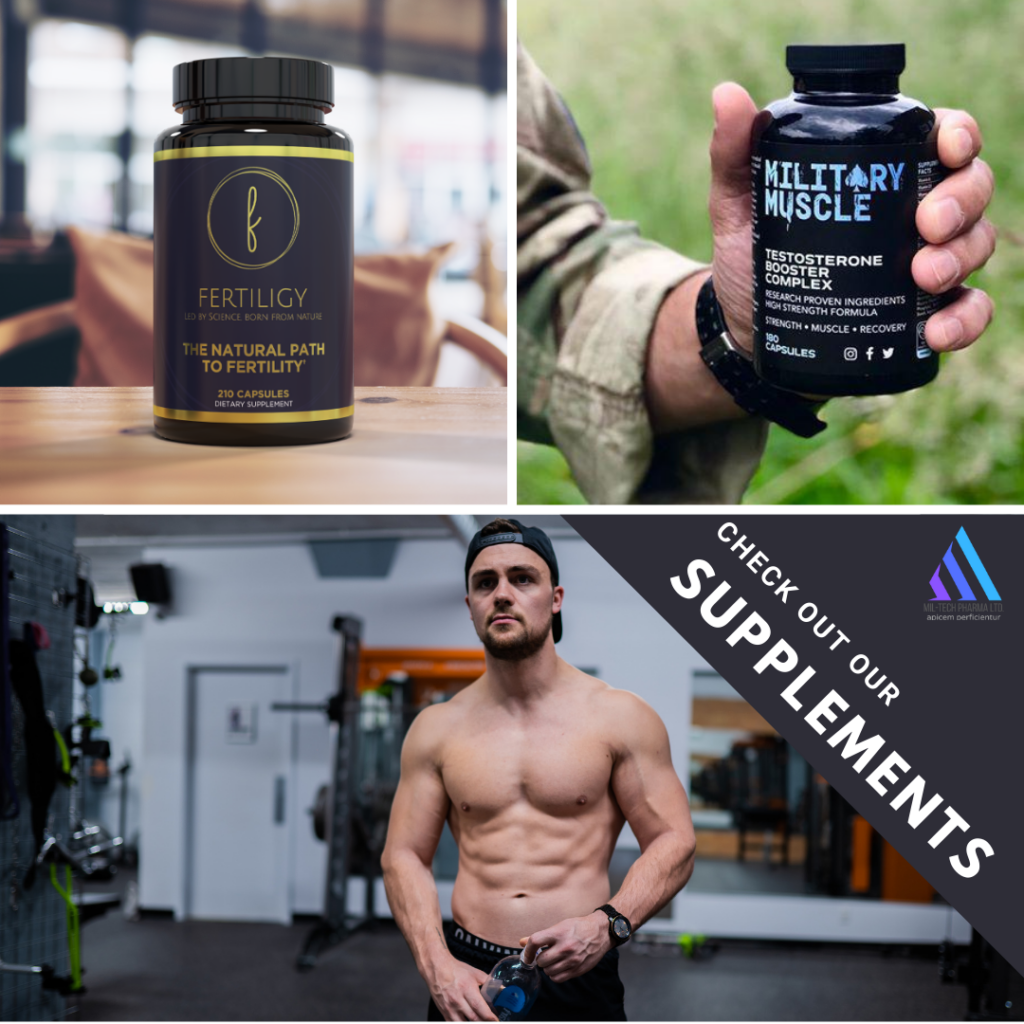How Does Iron Deficiency Affect Athletic Performance?
 Written by Ben: BA(Hons), PGCert. Sport & Exercise Nutrition.
Written by Ben: BA(Hons), PGCert. Sport & Exercise Nutrition.
–
Diet is one of the most vital elements of an athlete’s lifestyle, bringing a huge influence to bear on their well-being both in and out of competition, and the results they can achieve. Any micronutrient deficiency, such as high iron turnover can lead to poor results.
On the face of it, many people outside the sports nutrition sphere may consider protein to be the most important nutrient because it is so well marketed. On the flip side, iron is given little to no consideration, yet many athletes and people suffer a deficiency which can lead to a performance loss.
In this article we shall cover the following points:
- Why would an athlete be iron deficient?
- Importance of iron
- Performance implications
- Fatigue
- Heart rate
- Weakness
- Thirst
- Final Note
Iron and Athletes
Optimal nutritional intake has been considered important for decades, with leaner and more muscle-bound athletes achieving better results and longer careers. With the advent of sports science as a discipline all of its own, however, diet has come under the microscope to an extent we had never seen before.
Professionals will eat to a certain schedule, from a specific menu, and use selected supplements to get the maximum level of performance from their bodies.
While the typical “civilian” will have little in common with the professional sportsman or woman, we are all human. Some health conditions that affect people in general are also part of life for top athletes.
There are and have been professional soccer players who are asthmatic, NFL players with colitis, golfers with arthritis. The existence of a health problem, even one that affects you from birth, is not necessarily a bar to becoming a professional sports star.
At the same time, it would be irresponsible to deny that it complicates the process of reaching a higher level, and needs to be managed in order to stay there. When, for example, your health issue causes an iron deficiency, it is something to be addressed.
Why would an athlete have an iron deficiency?

An iron deficiency can result from any one of many different causes, with a primary relevant example being a condition such as Celiac disease, which prevents nutrients from being as well-absorbed as one would prefer.1
In the case of female athletes, there is the added consideration of cyclical blood loss as a result of menstruation.2
Furthermore, endurance athletes in general are susceptible to an iron deficiency due to an increase of need and a lack of dietary intake.3
Any athlete suffering from a condition such as endometriosis could very well experience anemia as a result of their blood loss, with iron deficiency leading to a long potential list of problems.4
Why is iron important to an athlete?
Iron is, not to put too fine a point on it, important to all of us. Our body uses it to create hemoglobin, which plays a vital part in transporting oxygen throughout the body. It also creates myoglobin, which delivers oxygen to the muscles.5
Without iron, we will very quickly experience fatigue, and we will also struggle to recover from any kind of muscle injury.6
For an athlete, this is of course all the more important – when they are training, they place their bodies under huge amounts of stress. Recovery periods are essential in athletics, which makes iron all the more important.7
This is just one part of why athletes have their diets mapped out for them by coaches and nutritionists.8 The right foods, and potentially supplements, have to be taken in the right amounts to ensure that an athlete can get the maximum benefit from their training.
One wrong step in the process can undo a great deal of progress, and be the difference between a winning performance and a “DNF” in the heats. As we look through the various aspects of iron’s importance to an athlete, we will underline just why it matters both in and out of competition.
Sports science and how it affects performance

While it would be an exaggeration to suggest that diet never mattered to the sports professionals of yesteryear, it’s certainly fair to say that it has never mattered as much as it does now.
Every sports club that can afford one has at least one nutritionist, usually a team of them. It doesn’t just matter what an athlete eats, but also when they eat it and how much of it.9
There will be different diet schedules for when the athlete is in competition, when they are off-season, when they are rehabbing an injury, and when they have a shorter turnaround than usual (such as during a major tournament).
Even an amateur sports enthusiast will now, knowing the pivotal importance of matters such as metabolism rates and iron turnover, approach their diet in a more serious way, and will acknowledge that rates of absorption for some nutrients can be less than stellar.
Iron is one of those nutrients, whether or not the athlete has a health issue causing malabsorption. The results of deficiency in iron are a very serious matter for athletes both professional and amateur, as we’ll see now.10
Fatigue
As we’ve covered, a lack of iron in the body results in an insufficient level of hemoglobin and myoglobin, both of which are responsible for transporting oxygen to areas of the body that will need it.
Oxygen is what makes everything happen in the body; we talk about the importance of blood supply with regard to health, but what really matters is the oxygen that the blood is carrying. If your body is low on oxygen, and your heart is pushing less of it out to the various destinations around the body, you’re going to feel tired.11
Fatigue is detrimental to athletic performance for plenty of reasons, one of which is the undeniable fact that it simply decreases your ability to move at speed.
Furthermore, it affects you mentally, leading you to make poorer decisions (such as passing the ball to the wrong player or jumping too soon at a hurdle). It affects your technique in a negative way, which can lead not only to errors but also to injuries; watch a rugby player tackling the right way, and then the wrong way and you’ll see the difference – the latter can lead to a broken neck or traumatic brain injury.
Increased heart rate/shortness of breath
When the body cannot get myoglobin and hemoglobin around the body at the speed it needs to, the signal goes up that there is something wrong.
The brain essentially issues an emergency call for more oxygen, the heart starts pumping harder and faster than before, and the lungs start fighting to get more breaths in. In the panic, breath becomes shorter and more ragged, ironically getting less oxygen to the places it needs to go.12
An increased heart rate is bad news in general – it places you at risk of a cardiac event, and has all sorts of additional effects that are less than ideal at the best of times, but seriously inconvenient when attempting to play in a sports match or run a race. Along with shortness of breath, the effects also include lightheadedness, brain fog, chest pain, and fainting.
Weakness

Perhaps a better word here would be “lassitude”, but to keep it simple, weakness will do. There are times in sport when you need to find a great deal of power, quickly.13
From the weightlifter going for a clean lift, to a distance runner kicking into the final bend, the importance of a surge of power at just the right time is essential. With an iron deficiency, one of the biggest problems is that you will go for that surge of power, and find it simply isn’t there. It’s often met with the body and brain’s realization that the power has gone, which is what leads to some athletes sinking to the ground mid-competition.
Furthermore, iron deficiency can cause an increased likelihood of cramp developing, particularly in the lower legs.14
You’ll often see it when watching a football match that has gone into extra time, or a tennis contest that has gone beyond the 6-6 stage in the final set. Players have done what they can, what they need to do, to be match-ready, but when the match takes more out of them than expected, they are more at risk of cramps. If you have an iron deficiency, this can occur much sooner than the fifth set.
Thirst
When your body is dealing with a demand that it struggles to cope with, it is common to feel deeply thirsty. This is because muscles depend on water to become energized, recover adequately which will give you an extra degree of power and strength.15
If you’ve ever been on the verge of sleeping during the day, it’s a better idea to drink water than coffee – the former will give your body what it needs in a more sustainable way. After a tiring sports match, you may well reach for a bottle of water, because your body is crying out for hydration.
You may even reach for ice chips, as they provide an extra level of cooling on top of the re-energizing effect of the water. Here we have an additional tip that’s worth remembering: if you find yourself really craving ice chips, then it may well be a sign of an iron deficiency.16
The reason for this association is unclear, but the desire to chew ice (pagophagia) is medically understood to be a clear sign of iron deficiency – so if it is something you experience on a regular basis, make sure to get your levels checked.
Final Note
All in all, an iron deficiency can do a great deal of damage to a promising sports career, or put an end to your enthusiasm for amateur athletics. This why we include iron in our Military Muscle testosterone booster.
Getting to grips with the issue as soon as possible can allow you to make the changes that you need to keep going.

References:
[1] https://www.ncbi.nlm.nih.gov/pmc/articles/PMC1435993/
[3] https://pubmed.ncbi.nlm.nih.gov/25017111/
[4] https://academic.oup.com/humrep/article/17/10/2715/607769?login=true
[5] https://www.ncbi.nlm.nih.gov/books/NBK544256/
[6] https://www.ncbi.nlm.nih.gov/pmc/articles/PMC6204587/
[7] https://www.ncbi.nlm.nih.gov/pmc/articles/PMC5407206/
[8] https://jissn.biomedcentral.com/articles/10.1186/s12970-019-0311-x
[9] https://link.springer.com/article/10.1007/s40279-018-1027-9
[10] https://www.sportsdietitians.com.au/factsheets/diets-intolerances/iron-depletion/
[11] https://www.ncbi.nlm.nih.gov/pmc/articles/PMC4408516/
[12] https://www.nhsinform.scot/illnesses-and-conditions/nutritional/iron-deficiency-anaemia
[13] https://www.ncbi.nlm.nih.gov/pmc/articles/PMC2953317/
[14] https://pubmed.ncbi.nlm.nih.gov/30071093/


